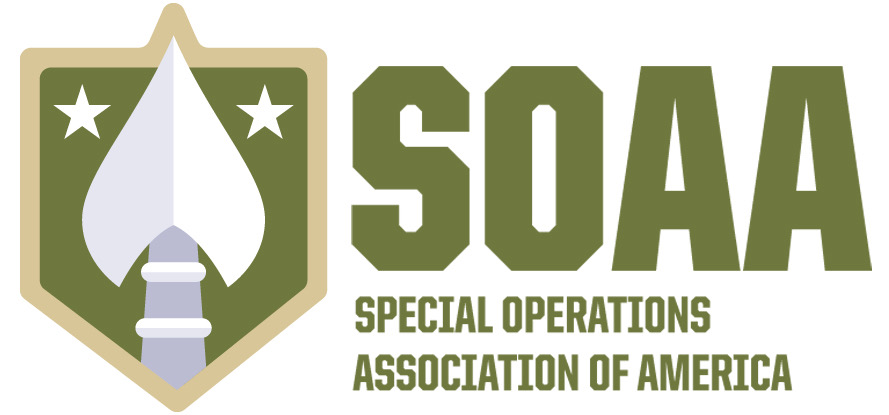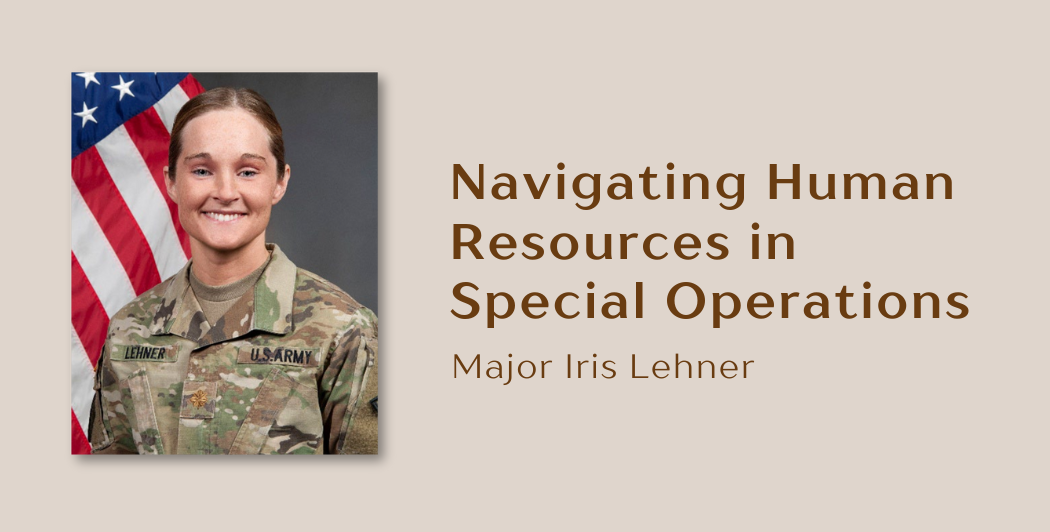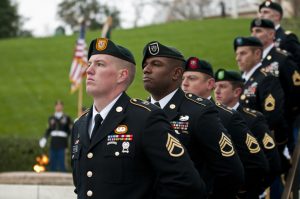For many, the world of Special Operations conjures images of elite warriors, rigorous training, and high-stakes missions. However, behind every successful Special Operations unit stands a dedicated support structure ensuring seamless personnel management and logistical coordination. Major Lehner, a human resource officer with experience in the worlds of both conventional and Special Operations forces, offers insight into the complexities and challenges of personnel management within this unique community.
As a Human Resources Officer (J1) in a Special Operations unit, Major Iris Lehner played a crucial role in facilitating the Assessment and Selection process. This process, fundamental to any Special Operations unit, serves to identify individuals who are the best fit for a given mission. She was responsible for ensuring the logistics were in place, coordinating the arrival of candidates, managing the movement of personnel, and ensuring that all necessary resources were available for successful assessments. Once candidates were selected, she oversaw their transition, ensuring a smooth integration into the unit. In addition to these responsibilities, she managed traditional personnel functions such as awards, evaluations, and orders, providing essential administrative support to the command.
Despite the structured nature of human resources, Major Lehner emphasizes that personnel selection in Special Operations is often influenced by more than just performance metrics or box-ticking exercises. “There is some word of mouth, especially for certain units,” she notes. Networks and personal connections within the Special Operations community play a critical role in identifying the right individuals for positions. Her background in the National Guard provided her with unique insights and connections across different states, enabling her to identify high-caliber candidates who may not have been visible through traditional channels. This ability to navigate the informal selection network proved invaluable in maintaining the elite standards of her unit.
Major Lehner’s path into Special Operations was not one she initially envisioned. As a traditional member of the Guard, she was aware that opportunities to serve in Special Operations were rare for personnel officers. However, through connections within the community, she was recommended for a position, applied, and successfully passed the assessment and selection process. Her experience underscores the significance of reputation and networking in career progression within Special Operations. “It is very much about enough people knowing you and being a known entity,” she says, highlighting the tight-knit nature of the community.
Serving in a Joint Special Operations Command (JSOC) unit was a transformative experience for Major Lehner. Having worked in various military organizations, she describes the JSOC environment as unparalleled in its concentration of top-tier professionals. “I have never worked in an organization where everyone around you was the best of the best,” she recalls. The experience not only challenged her but also reinforced her ability to perform at a high level.
While serving in Special Operations, Iris was offered the opportunity to join the Title 10 Active Guard Reserve (AGR) program, a rare and competitive career path that provided long-term stability. She accepted and embraced this new opportunity, although leaving JSOC was a difficult decision. “I was sad that I wasn’t going to have the opportunity to serve with them again,” she admits, acknowledging the sacrifices required to balance military service and personal aspirations.
Transitioning to a full-time National Guard role presented new challenges, particularly in balancing military responsibilities with family life. Both she and her husband serve in the military, requiring careful coordination of their schedules. The support of their extended family has been instrumental in managing the demands of dual military careers. “If it wasn’t for my in-laws and my parents, I don’t know that I would be able to perform at the level I strive for in my job,” she acknowledges.
Her experience also provides valuable insights into the broader challenges faced by members of the National Guard. Unlike their active-duty counterparts, traditional members of the Guard often juggle demanding civilian careers alongside their military responsibilities. Despite these challenges, they are expected to maintain the same level of proficiency as full-time service members. Retention remains a significant issue, as many struggle to balance their dual commitments. Major Lehner points to Duty Status Reform as a potential solution, advocating for parity in benefits between Guard and Reserve members. “If we want them to perform at the level we expect, they should receive the benefits they’ve earned,” she argues.
Major Lehner currently serves in the Arkansas National Guard, and her journey illustrates the dedication, adaptability, and sacrifices required to serve in the Special Operations community. From managing personnel logistics to navigating career transitions and family life, her experience reflects the multifaceted nature of military service. While her time in JSOC was limited, the lessons learned and the professional growth she experienced continue to shape her career. Through her story, she highlights the indispensable role of human resources in sustaining the elite forces that safeguard national security.





